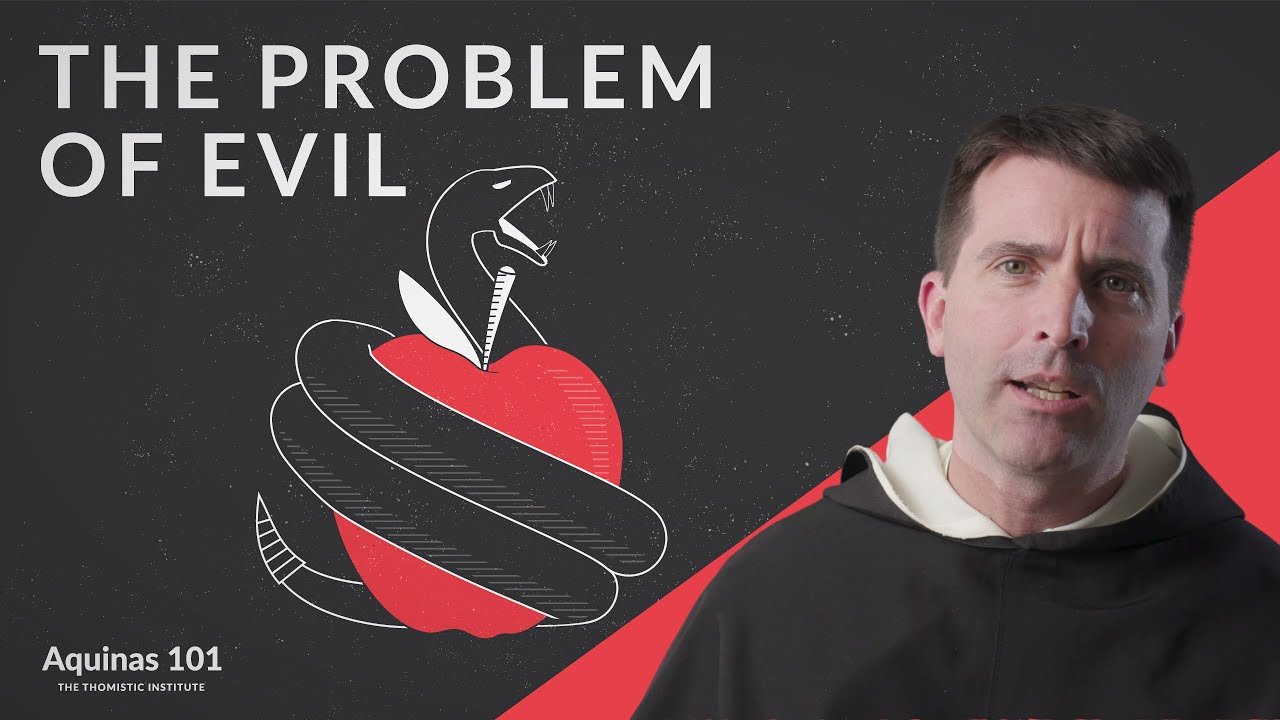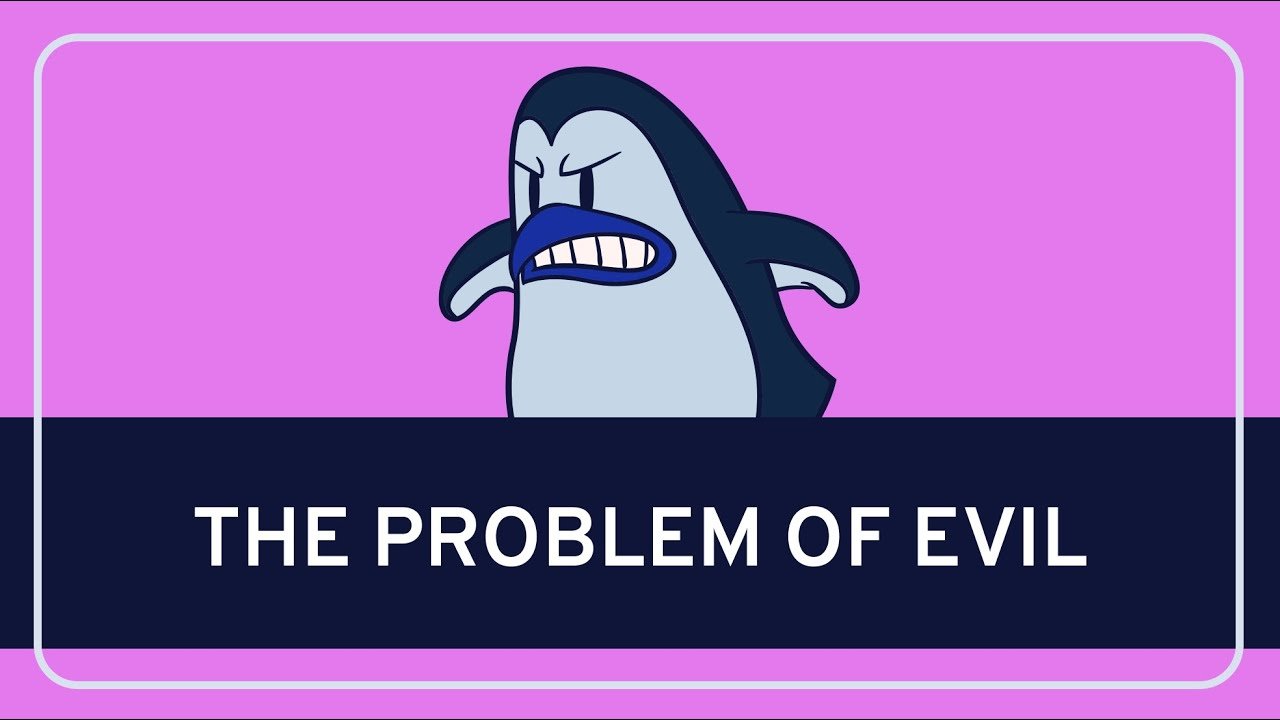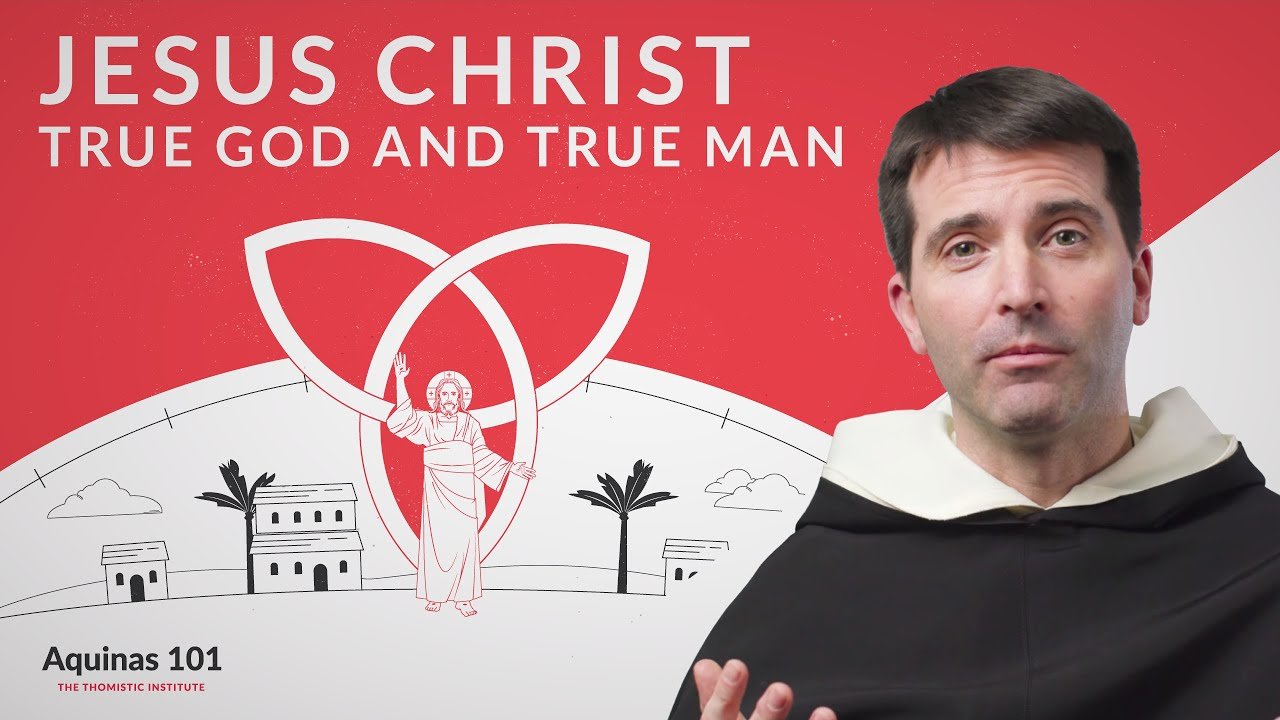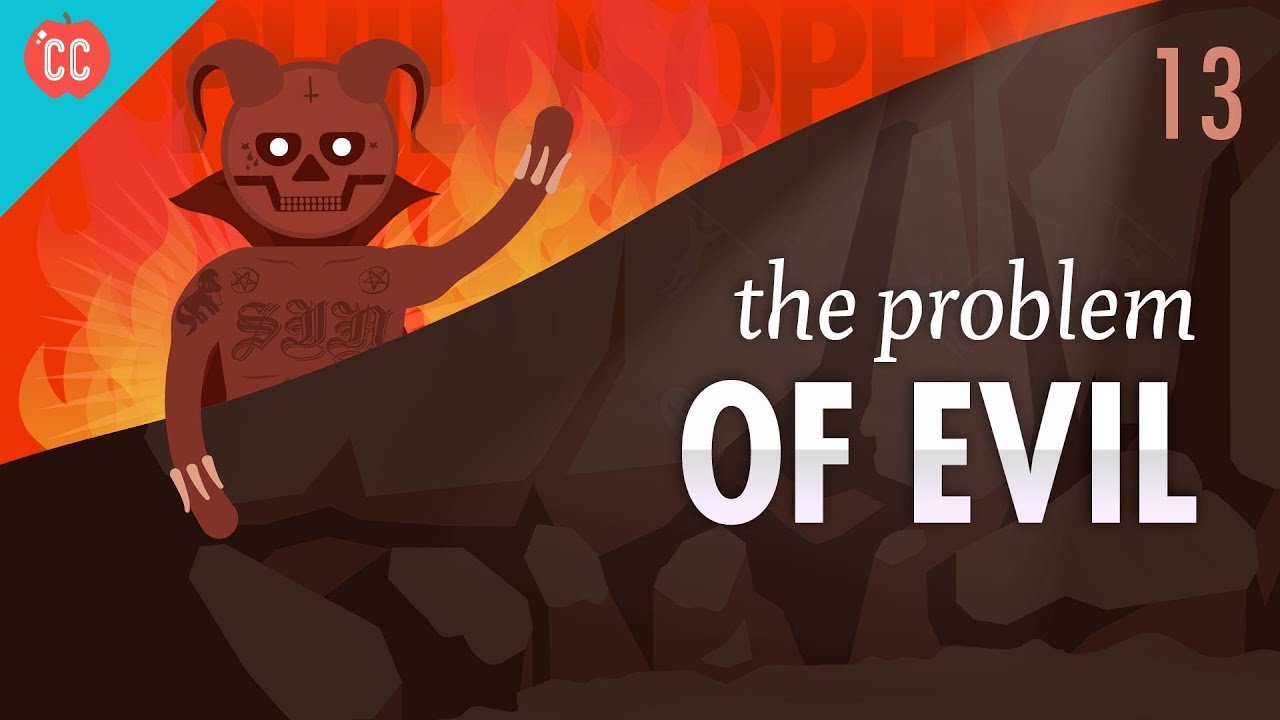What is evil, and why does God permit it in his creation? St. Thomas Aquinas teaches that in a general sense, evil is an absence or lack of what should be there. Technically speaking, we call this a privation, so evil is not a being or in nature. It’s the absence of something.
Suppose I say I’m going to draw a circle, and then I don’t finish it. You might say, “Hey, that’s a bad circle. Part of it’s missing.” You’re pointing out a privation. Notice though that I haven’t directly caused something that is bad in itself. The circle is good as far as it goes.
It just doesn’t go all the way. But wouldn’t it have been better if I had caused the whole circle to exist? Well, in general, yes, but perhaps there was a good reason why I didn’t. Maybe I was trying to illustrate what a privation is.
In that case, this defective circle would be an essential part of some larger project, some higher good–like bringing you to understand the problem of evil. This is how Aquinas approaches the problem of evil. God has created a changeable world of material things, and in order for such a world to exist,
It’s necessary that things grow, die, and decay. Aquinas calls these things natural evils. Gazelles eat grass, and lions eat gazelles. He sets this idea of natural evil in a larger context. It’s a necessary feature of the good of the whole ecosystem of the whole universe.
Now when Aquinas talks about the evil that human beings experience, he no longer speaks of natural evil. Rather, there are two unique types of evil that pertain to rational and free creatures. The evil of poena in Latin that’s translated typically as the evil of pain or penalty or
Punishment, and the evil of culpa in Latin translated as the evil of fault or of guilt. So, an example: Suppose Billy the Kid wakes up late for work. He doesn’t have a horse, so he steals his neighbor’s.
This is bad, of course, for his neighbor, but even more for Billy who has willfully refused to do what right reason tells him and has committed a serious injustice, an act unworthy of a human person.
This is what Aquinas calls the evil of fault or of guilt, and it is a kind of moral suicide. Arrested by the sheriff, Billy is sentenced to prison. This too is an evil for him because he’s now deprived of his freedom of movement.
But this second evil–being in prison–is not the same kind as the first. It’s an evil Billy suffers in response to an evil that he committed, and it’s called a penalty or punishment. How should we compare these two evils?
Well, the evil of fault is worse. By sinning Billy has freely chosen to make himself a bad man. By contrast, Billy’s punishment, while an evil for him in one sense is good and just, and it can even help Billy become good.
Especially if he accepts it and offers it in reparation for his fault. God never wills the evil of sin or of fault. Sin is our fault, not God’s. We choose some partial good contrary to the order of right reason, not caring about the
Damage that will result, and God permits us to do this, but he in no way is its cause. But God does will the punishment that follows from this moral evil both in order to restore the right ordering of justice and also to correct the wrongdoer,
Much like a judge and other honest citizens rightly desire a thief to be arrested and given a just punishment. Just like Billy can offer up his punishment in reparation for the evil he did, so we too can offer up all the evils we suffer in reparation for the sins we and others have
Committed. Let’s pose a harder question. Why does God permit the suffering of the innocent? We’re entering deep waters here, and we can only sketch a very brief answer. Human suffering, bodily death, undergoing persecution and injustice– these are very real and terrible evils, and they were not part of God’s original plan for us.
He created our first parents in grace with the special privilege of being free from illness, suffering, and death. Those evils only entered the world because of the sin of our first parents and we inherit the terrible consequences of this original sin: suffering, death, and even an inclination to sin.
It’s a lot like a baby born to a mother who’s a heroin addict. That baby inherits the terrible consequences of the mother’s addiction. In those who suffer them, they are the evils of pain or penalty. They can be the occasion for great moral nobility and goodness, like when a person offers his
Life to God in the midst of illness or when someone perseveres in the truth and even forgives an unjust persecutor. The hardest question is why does sin exist? Because every sin involves a privation, a lack of what should be there, we’re dealing with non-being and non-being is strictly speaking unintelligible.
So we can explain how a sin is possible. The creature focuses its attention and directs its will to some limited good disregarding the defect or disorder that that choice will cause, but we cannot explain why the creature does this. Because evil is incoherent in itself. It’s always stupid and self-defeating.
Why then does God permit it? Some have answered this question by using the so-called free will defense, saying that if there’s freedom, it’s impossible for God to prevent evil. This is not Aquinas’s answer, and he thinks it has serious philosophical problems. As we explained in the video on predestination and freedom,
God as our creator is the origin of our freedom and implants in us our desires for good, and so he can act within our will, moving it to good. So in any particular case, God could move us to freely choose the right thing. Why then doesn’t he always do so?
Here we’ve reached a mystery too deep for our minds, why God has created this world and not another. Aquinas doesn’t think we can say much more than this, but he does offer two quasi explanations that help us glimpse the deep wisdom of God’s providence.
First, we can be sure that God only permits evil for the sake of some much better and higher good, including not only our individual good, but the good of the whole creation. This is very mysterious, because we can’t see this whole, and we can’t conceive how permitting sin might lead to good.
But we know it’s true. God is infinitely powerful and infinitely good. Able to bring an even greater good out of every evil. We also know that we are very limited, especially in our understanding of the whole.
We’re kind of like a baby with a soiled diaper who screams because his father makes him take a bath. He doesn’t understand the good that his father is accomplishing for him through what seems to the baby like pointless suffering, but in reality, it’s for the baby’s good.
Finally, Aquinas says that God allows the defect of sin so that he can manifest his goodness in an even greater way as our savior. This is a beautiful and high truth, and it reaches its pinnacle in the cross.
There God himself takes upon his human shoulders the whole weight of our sins and bears them through terrible suffering, even unto death. He does this precisely so that his redeeming mercy and love for us sinners would shine out more clearly. So that we might be brought from sin unto forgiveness and eternal life.
For readings, podcasts, and more videos like this, go to Aquinas101.com. While you’re there, be sure to sign up for one of our free video courses on Aquinas. And don’t forget to like and share with your friends, because it matters what you think!
#Problem #Evil #Aquinas



